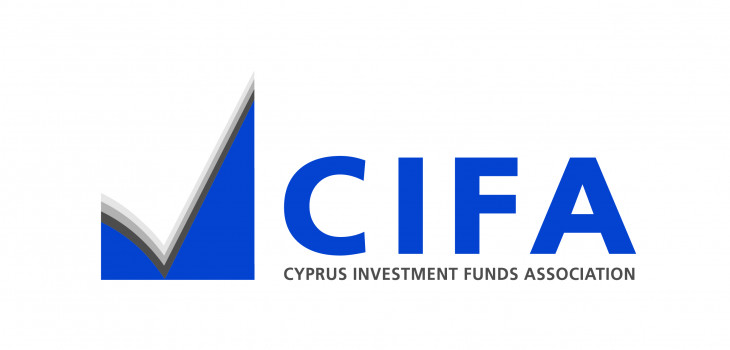
Investor Education on the Risks of Crypto-Asset Investment
Investor interest in crypto-assets across the globe is on the rise and their inherent risks, along with a lack of proper information and the online hype, can lead to material losses for investors. Thus, it is imperative that investors and the public at large is informed and educated about the risks involved in investments in crypto-assets. As such, appropriate educational messages about the risks and characteristics of crypto assets must be effectively communicated in order to enhance the protection primarily of retail investors.
The rapid growth of the crypto-asset markets and the eco-systems that support them pose new challenges and risks for all regulating bodies across the world. While technological innovation offers many promising possibilities – such as improved access to financial services – the immaturity of the ecosystem and the assets themselves, could inhibit the cultivation of trust in the sector.
Crypto-assets at a glance
Crypto-assets are often sold or auctioned in what is called an Initial Coin Offering (ICO). Crypto-assets in ICOs are referred to as “tokens,” thus ICOs are in some cases referred to as Token Generating Events (TGEs). Similarly, to Initial Public Offers (IPOs), the primary intention of ICOs is to raise funds from third parties to finance an idea or business model, by offering private investors the opportunity to invest in it. ICOs often contain a so-called "white paper" which can be viewed as a summary of the key characteristics of the planned project, but they usually do not offer the same guidelines and particulars that are provided in regulated securities prospectuses, allowing far less transparency and possible confusion of the public in relation to the risks associated with the investment.
Risks of investment in crypto-assets
Investor must be aware that investment in crypto-assets include the following main risks directly related to crypto-assets, such as liquidity risk, volatility risk, cyber-risks, fraud, and many other.
Liquidity risk or lack of liquidation refers to the impaired ability to sell crypto-assets when one wishes to by exchanging it with money (without losing money in the process).
Many crypto-assets have no tangible value – contrary to traditional securities, such as stocks or bonds, resulting in their value and price depending exclusively on supply and demand which in most crypto-assets can be highly speculative. This may lead to high volatility of prices and investors suffering large losses.
Furthermore, aggressive marketing campaigns employed via online media, social media channels and by celebrity endorsements or influencers aimed at the public at large, include less sophisticated and inexperienced retail investors with low risk tolerance, cause widespread concern. It is not easy for the public to comprehend the various different functions and characteristics of each crypto-asset, especially due to insufficient or inaccurate information and risk disclosures, highly technical language of documentation, and the promotion of increasingly complex products by the crypto firms.
Crypto-assets can be said to be a truly global market without national or jurisdictional borders, and since there is currently no comprehensive regulation for crypto-assets at national or international level, in many jurisdictions, crypto-assets are not regulated by the existing regulations. As a result, there is no coverage for investors by the usual redress systems or deposit protection schemes in the event of financial insolvency of a custodian wallet provider. Making a successful claim against the crypto-asset issuer, wallet provider or intermediary, may prove difficult, leaving crypto-asset owners exposed also to counterparty risk.
In light of this and the quickly evolving trend of the sector, there is an urgent need for an EU-wide regulation. The proposed EU Regulation on Markets in Crypto-Assets (MiCA) will set regulatory requirements for the public offer and marketing of crypto-assets and the provision of services related to them, as well as include provisions to prevent market abuse involving crypto-assets. MiCA aims to bring crypto-assets, crypto-assets issuers and crypto-asset service providers under a common regulatory framework, to protect investors and preserve financial stability, while allowing and fostering innovation in the crypto-asset sector.
The crypto-assets market also carries technical and operational risks, most prominently those of cyberattacks, failures of IT and blockchain infrastructures, and loss of the access codes by the crypto-asset owner. And while risk of fraud may exist in all financial and investment sectors and asset types, the high complexity and technicality of the blockchain system and the very innovative nature of the business models, combined with the lack of information and allure of a completely intangible and digital asset, may cause investors to easily fall prey to fraudsters. It’s therefore key that investors realise that the capital invested in crypto-assets is not guaranteed and they always run the risk of partial or total loss of their investment.
According to the International Organization of Security Commissions (IOSCO) 2020 report on Investor Education on Crypto-Assets[1], even though crypto-assets are not regarded as a threat to economic or financial stability in their current state, it is essential that the sector’s growth must be continually monitored by the Regulatory Authorities, to enhance retail investor protection and encourage the development of fair and efficient crypto-asset markets, while averting the threat of future systemic risk.
CySEC is determined to play an important part in improving investor education on risks of crypto-asset investment, and it will remain vigilant of the growth of the sector, in anticipation of the passing of MiCA that would allow for its comprehensive supervision.
Safeguarding investor interests via education
An important aspect to investor protection is the financial literacy of the public, which as repeatedly established through surveys is at very low levels in Cyprus, as well as worldwide.
In the framework of its objective to cultivate and promote financial literacy in Cyprus, the Cyprus Securities and Exchange Commission (CySEC) is once again participating in the global campaign organised by the International Organization of Security Commissions (IOSCO), World Investor Week (WIW) 2022. During the week-long campaign, over 100 countries represented by their Supervisory Authorities – alongside 11 regional and international organizations – will collaborate to spread key messages to educate and protect investors and the general public.
Regulators across the world, including CySEC, develop and disseminate educational materials around the key themes, and provide information to the public by making use of various communication channels to reach investors, particularly the young and vulnerable groups of the population. During the WIW 2022, CySEC made extensive use of social media and also enriched the educational content of its dedicated Financial Education Portal[2]. The Portal includes also articles, guides and booklets in simple terms and language that is easily understood by the general public, informing investors about fraud and how they can avoid being misled by unlicensed firms.
Last but not least, the Cyprus Securities and Exchange Commission (CySEC), is committed to communicating with all interested parties to enhance the protection of retail investors, through its recent Investor Protection Campaign, which aims to create awareness and spread the right messages via social media. In all its campaigns, CySEC underlines that investors need to do their homework and only invest money they can afford to lose. This advice is not just for cryptocurrencies but for all investments in general.
[1] https://www.iosco.org/annual_reports/2020/pdf/annualReport2020.pdf
[2] https://www.cysec.gov.cy/en-GB/investor-protection/financial-education/




